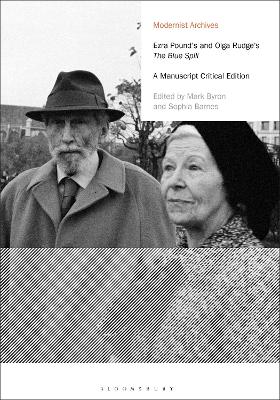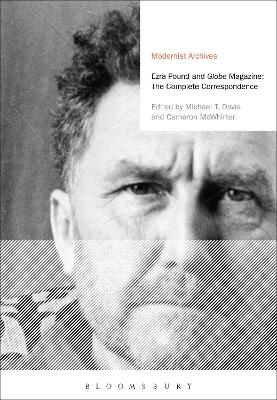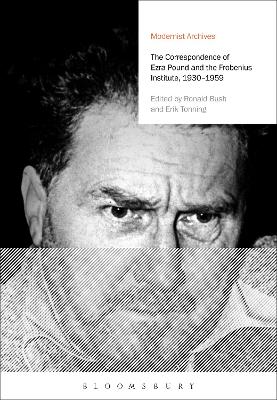Modernist Archives
3 total works
Written during the Italian winter of 1930, The Blue Spill is an unfinished detective novel written by Ezra Pound - the leading figure of modernist poetry in the 20th century - and his long-time companion Olga Rudge. Published for the first time in this authoritative critical edition, the novel reflects both Rudge's and Pound's voracious reading of popular fiction as it echoes and parodies such writers as Agatha Christie, Dorothy L. Sayers and P.G. Wodehouse.
Based on the original manuscripts of the novel, this critical edition includes annotation and textual commentary throughout. The book also includes critical essays exploring the contexts of the work, from the dynamics of artistic collaboration to the growing popularity of detective fiction at the beginning of the 20th century. Taken together, this unique publication sheds new light on the relationship between the literary avant-garde and popular culture in the modernist period.
Based on the original manuscripts of the novel, this critical edition includes annotation and textual commentary throughout. The book also includes critical essays exploring the contexts of the work, from the dynamics of artistic collaboration to the growing popularity of detective fiction at the beginning of the 20th century. Taken together, this unique publication sheds new light on the relationship between the literary avant-garde and popular culture in the modernist period.
Ezra Pound and 'Globe' Magazine: The Complete Correspondence
by Ezra Pound
Published 19 November 2015
In the summer of 1936, Ezra Pound agreed to take on the role of European Correspondent for a newly launched travel journal entitled Globe: The International Magazine. Ezra Pound and 'Globe' Magazine: The Complete Correspondence collects for the first time Pound's writings for the journal and his extensive correspondence with one of its editors, James Taylor Dunn, and the leading writers who Pound himself attempted to recruit for the magazine. Numbering almost forty letters and twenty published and unpublished articles, these writings represent a darkly significant time in Pound's thought as his infatuation with the rise of fascism took root.
Annotated throughout and supported by substantial explorations of the historical and cultural contexts of the writings, the book also includes a substantial bibliography of related writings and a biographical glossary of the major figures discussed in the correspondence and writing. Together, these texts represent an important resource for anyone interested in an important phase of 20th-Century literary modernism.
Annotated throughout and supported by substantial explorations of the historical and cultural contexts of the writings, the book also includes a substantial bibliography of related writings and a biographical glossary of the major figures discussed in the correspondence and writing. Together, these texts represent an important resource for anyone interested in an important phase of 20th-Century literary modernism.
The Correspondence of Ezra Pound and the Frobenius Institute, 1930-1959
by Ezra Pound
Published 9 April 2015
Collecting in full for the first time the correspondence between Ezra Pound and members of Leo Frobenius' Forschungsinstitut fur Kulturmorphologie in Frankfurt across a 30 year period, this book sheds new light on an important but previously unexplored influence on Pound's controversial intellectual development in the Fascist era. Ezra Pound's long-term interest in anthropology and ethnography exerted a profound influence on early 20th century literary Modernism. These letters reveal the extent of the influence of Frobenius' concept of 'Paideuma' on Pound's poetic and political writings during this period and his growing engagement with the culture of Nazi Germany. Annotated throughout, the letters are supported by contextualising essays by leading Modernist scholars as well as relevant contemporary published articles by Pound himself and his leading correspondent at the Institute, the American Douglas C. Fox.


